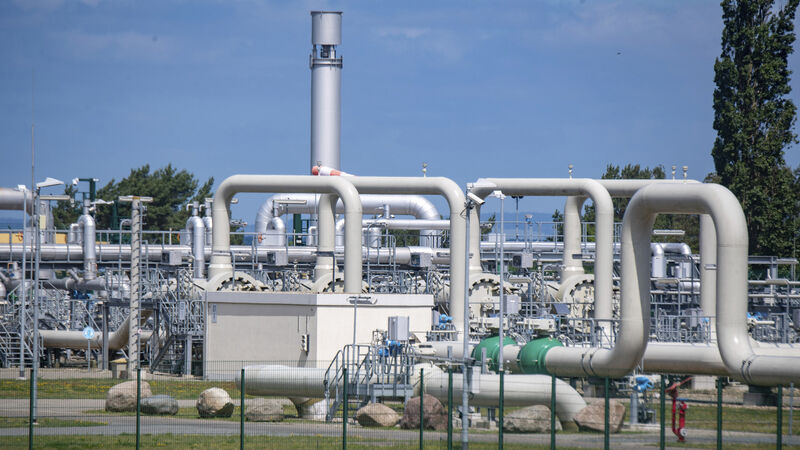Markets plan for doomsday should Russia cut off gas to Europe

Gas-receiving station of the Nord Stream 1 Baltic Sea pipeline. Many investors say there’s reason to believe Russia will turn gas supply back on when maintenance on the pipeline ends on July 21. But, as UBS economists point out, if European countries start voluntary gas rationing, the hit to economic growth will be severe.
European stocks plunging 20%. Junk credit spreads widening past 2020 crisis levels. The euro sinking.
The predictions are ominous for financial markets if Russia cuts off all the gas supply to Europe.














